Bathroom wall panel ideas – 11 ways to modernize this classic trend
Take inspiration from these real spaces for a contemporary twist on bathroom wall panel ideas

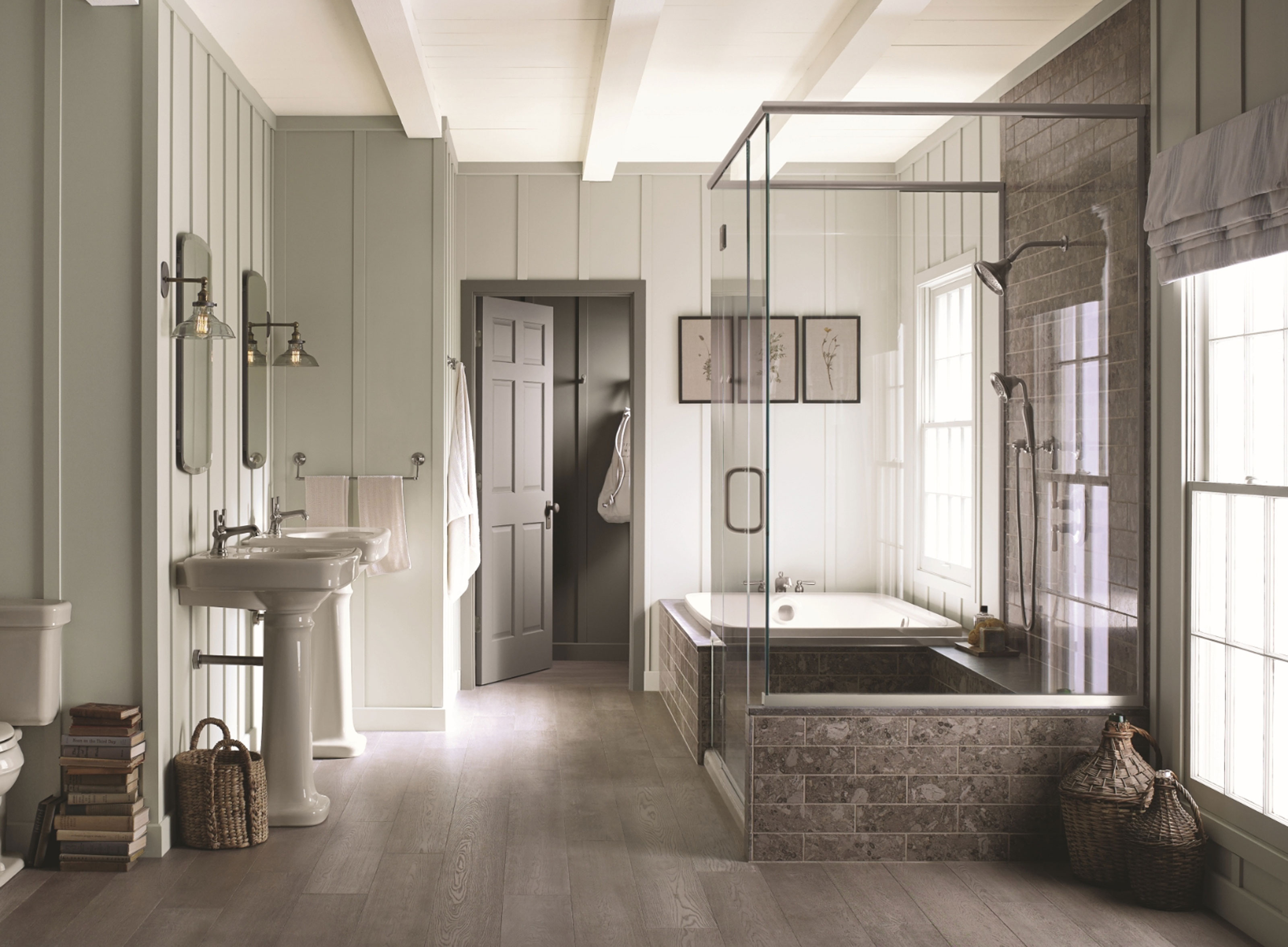
The Livingetc newsletters are your inside source for what’s shaping interiors now - and what’s next. Discover trend forecasts, smart style ideas, and curated shopping inspiration that brings design to life. Subscribe today and stay ahead of the curve.
You are now subscribed
Your newsletter sign-up was successful
Given that it's thought wall paneling originated from as early as the late 15th century, it's safe to say that bathroom wall panel ideas aren't a new phenomenon. However, as a design trend, wall paneling in bathrooms has been embraced in the modern age as a way to resist the stark, sometimes clinical nature of bathroom design.
However, its historic heritage means that most forms of wall paneling bring a more traditional essence to a bathroom scheme, making it less of a match for those seeking modern bathroom ideas without some serious design intervention.
If you're combating the natural characteristics of paneling to make it work in a contemporary bathroom, is it even worth the trouble? In some instances, yes, definitely – wall panels offer a bathroom a lot in terms of both practicality and aesthetics that it's worth fighting for.
'Functionally, paneling the walls in a bathroom is a good way to protect wall areas that tend to get a lot of traffic,' explains Sarah Zames, Principal Designer at New York-based design studio General Assembly, 'and the linear pattern is a nice way to add some more texture to the space.'
With that in mind, take inspiration from our expert tips for using paneling in a bathroom – including ideas for twisting traditional paneling designs to suit a modern home and how to work with contemporary paneling styles.
Bathroom wall panel ideas for a contemporary take on the trend
1. Combine heritage-style wall paneling with modern elements
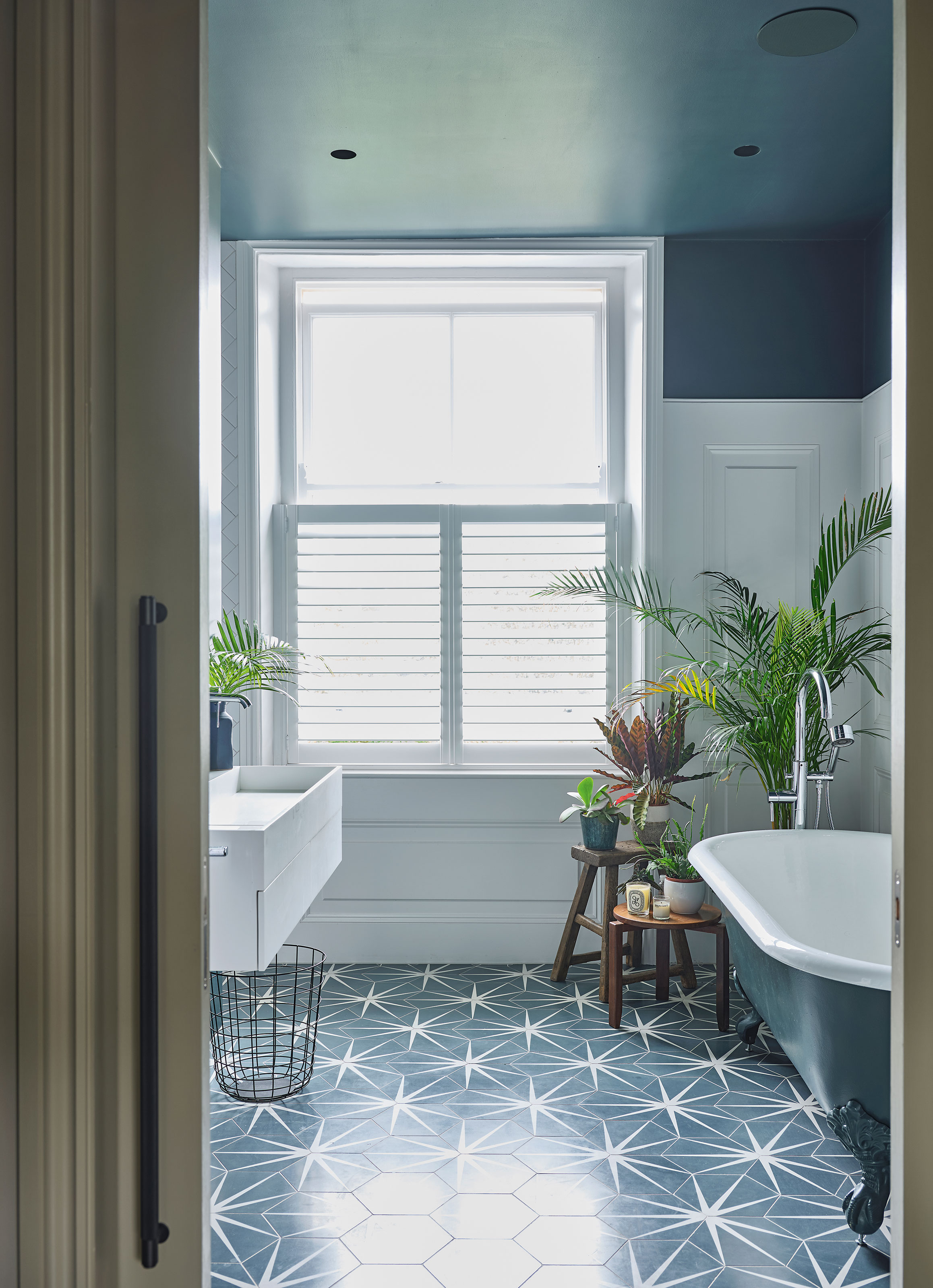
Heritage-style paneling, whether original or not, can lend a bathroom scheme in the right home a sense of appropriate grandeur. However, if you overplay your hand when it comes to traditional details with wall panels, you'll find your bathroom will come off more period drama than you mean it to.
'The secret to making it work is in the mix,' says Darren Allison, Managing Director of BC Designs. 'Just remember, opposites attract.'
The Livingetc newsletters are your inside source for what’s shaping interiors now - and what’s next. Discover trend forecasts, smart style ideas, and curated shopping inspiration that brings design to life. Subscribe today and stay ahead of the curve.
In this bathroom scheme, classic Regency-style wall panels are contrasted against a fresh white and blue color palette and a modern bathroom tile idea, balancing old and new elements for a design that feels timeless.
2. Use shiplap wall panels for an uplifting bathroom
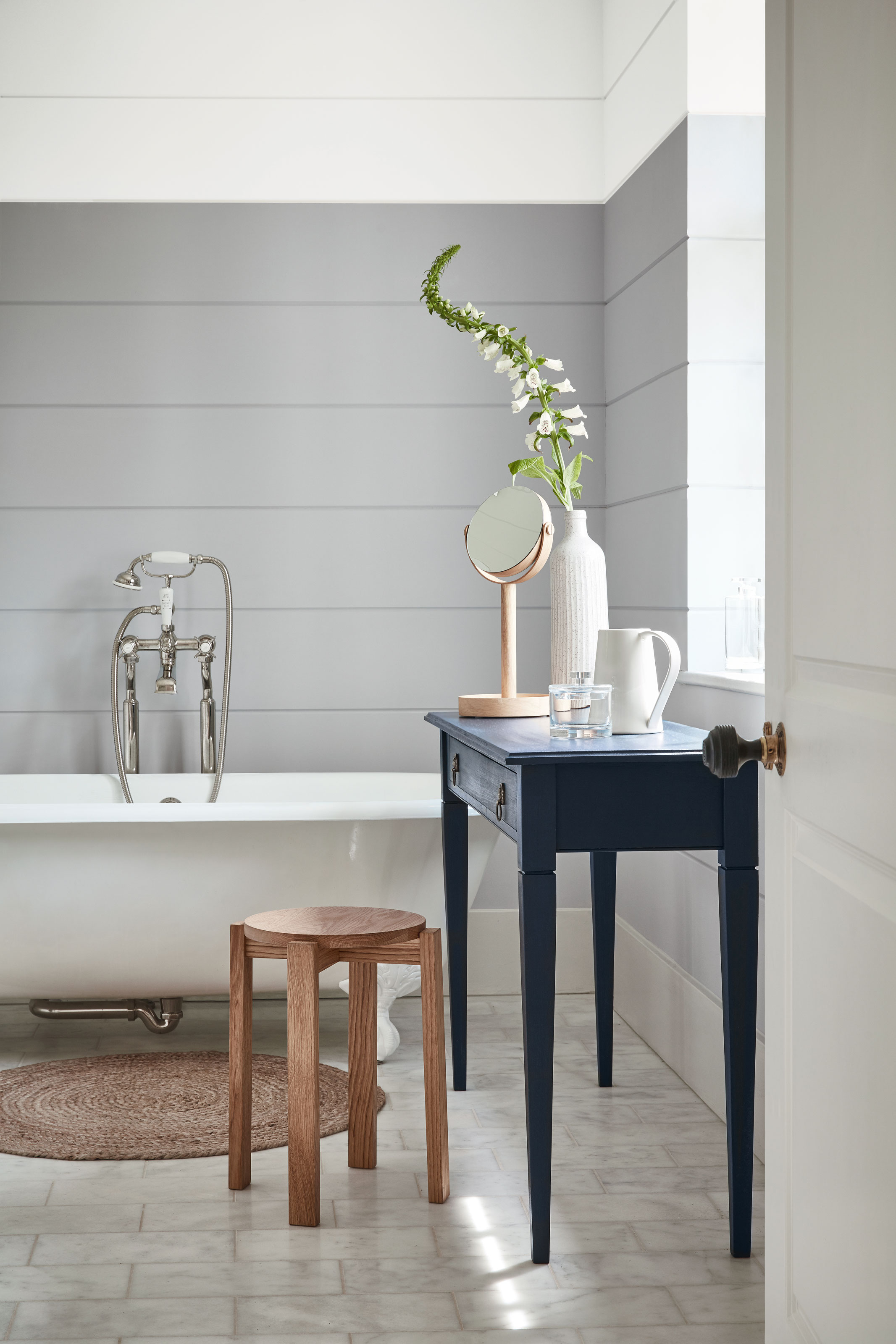
Shiplap panels are most associated with coastal homes, particularly New England-style properties, but with their wide format, horizontal panels, they've been adopted across the world for their minimalist texture and graphic charm.
This bathroom color idea with two shades split across the shiplap is an interesting take on the half-painted wall trend that's commonly seen with more traditional paneling designs.
3. Modernize beadboard paneling with contemporary bathroom fixtures
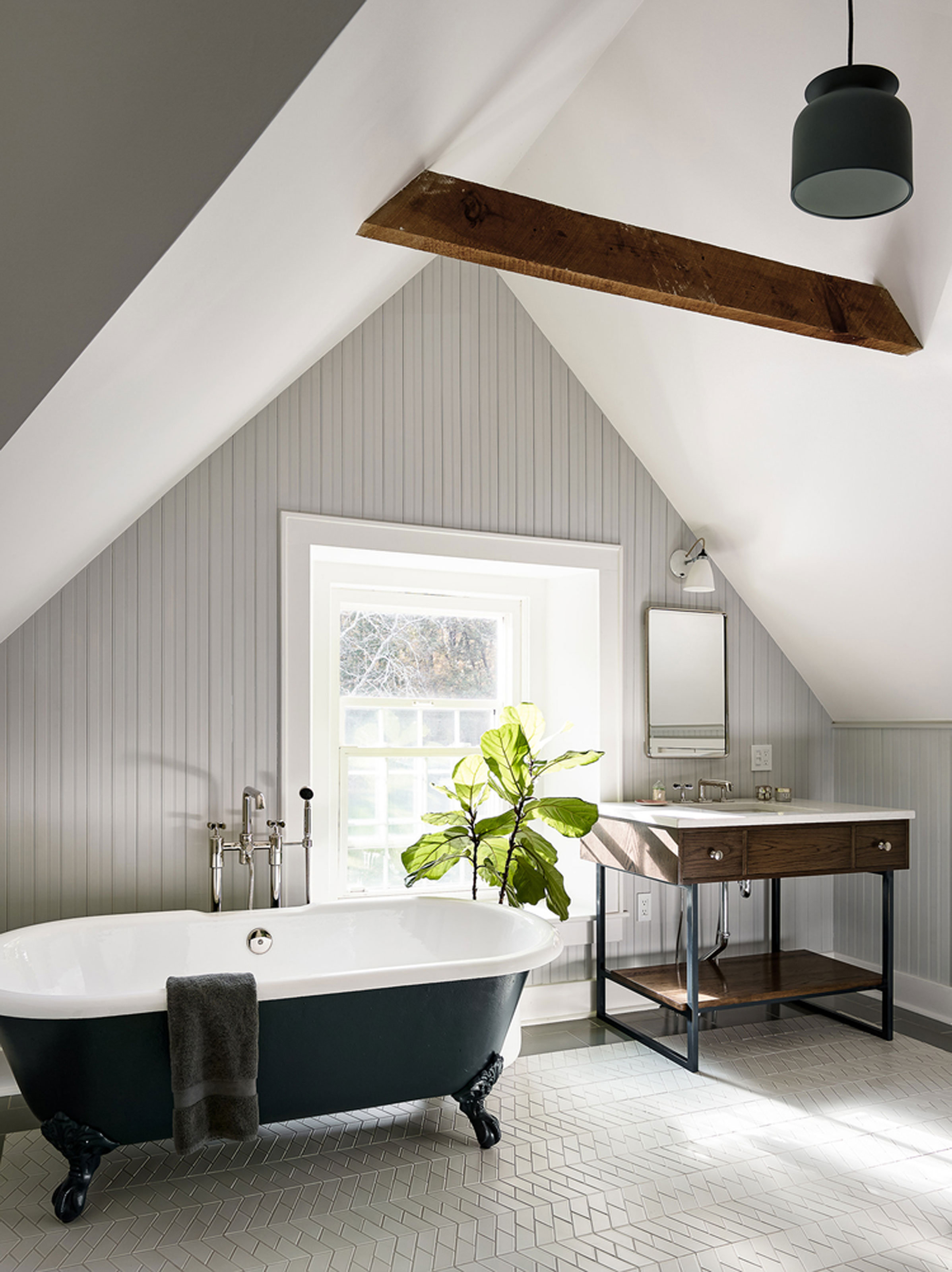
Beadboard paneling is identifiable by its characteristic bead section between each vertical panel. This detail plays into a certain rural-ideal aesthetic – it's a stalwart of the cottagecore trend after all – that makes it a popular choice, especially for period properties and houses in the countryside.
However, beadboard can have its place in more contemporary homes too, when combined with the right bathroom fixtures and fittings.
This modern bathroom design by New York-based interior architects General Assembly combines full-length paneling – meaning none of the fussy edging details when wainscoting beadboard – with streamlined bathroom furniture.
'For our Catskills house project, we chose to include beadboard paneling in the bathroom to reflect some of the original details of the stone house,' explains General Assembly's Sarah Zames. 'We continued it up to the ceiling to accentuate the height of the space and make it feel a touch more modern.'
4. Opt for wainscoting around your basin faucet
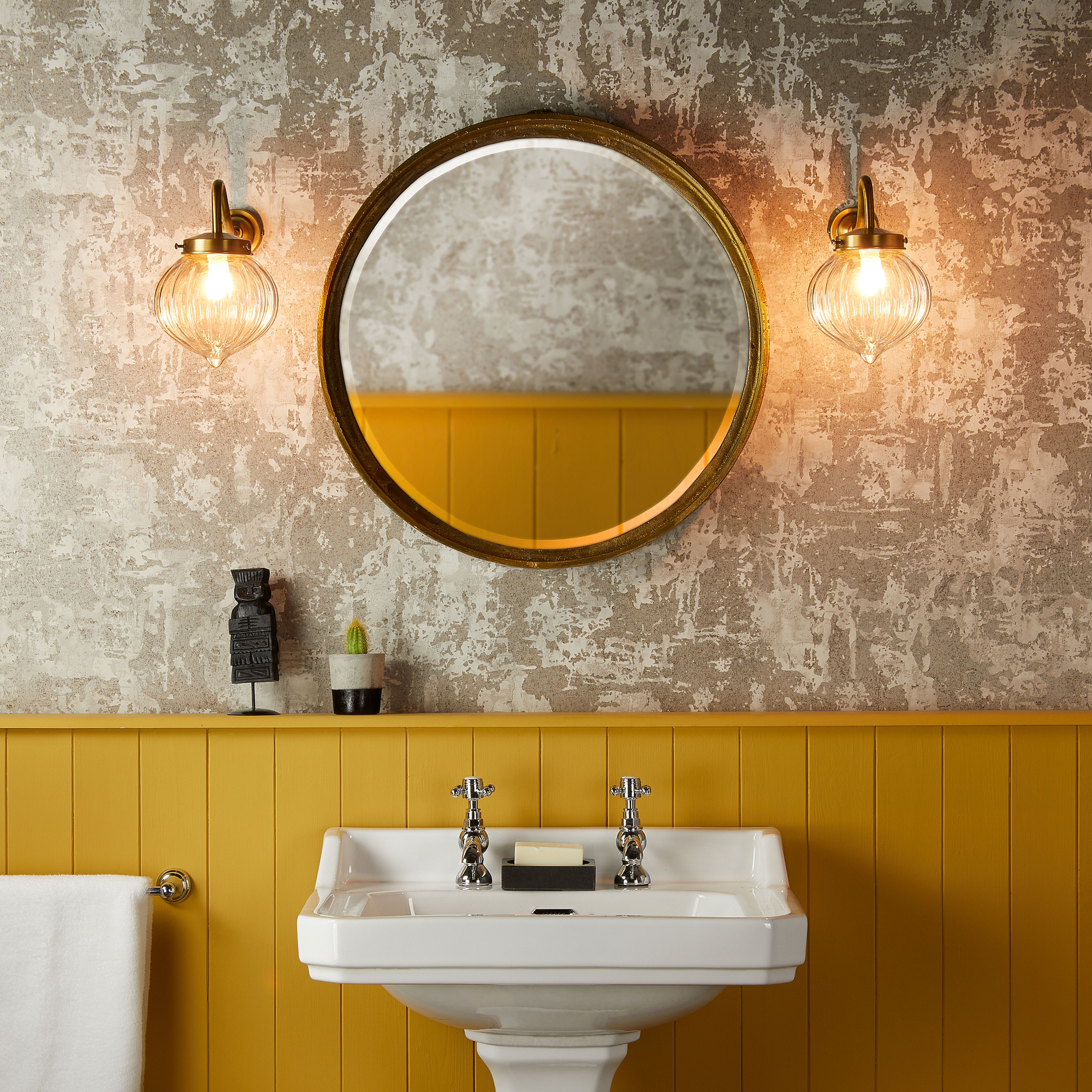
If you're looking beyond bathroom wall tile ideas for your design, wainscoting is an effective choice for use around a basin. As paneling is usually painted in hardier finishes such as eggshell, satin or gloss, it will survive splashes from your faucet much better than a painted wall, even when using bathroom paint throughout.
Because wainscoting only covers the lower half of your walls, this leaves you the opportunity to combine it with other creative finishes throughout your bathroom, and can be used in combination with tile, other paint colors, and more.
5. Combine wainscot panels and wallpaper in a bathroom
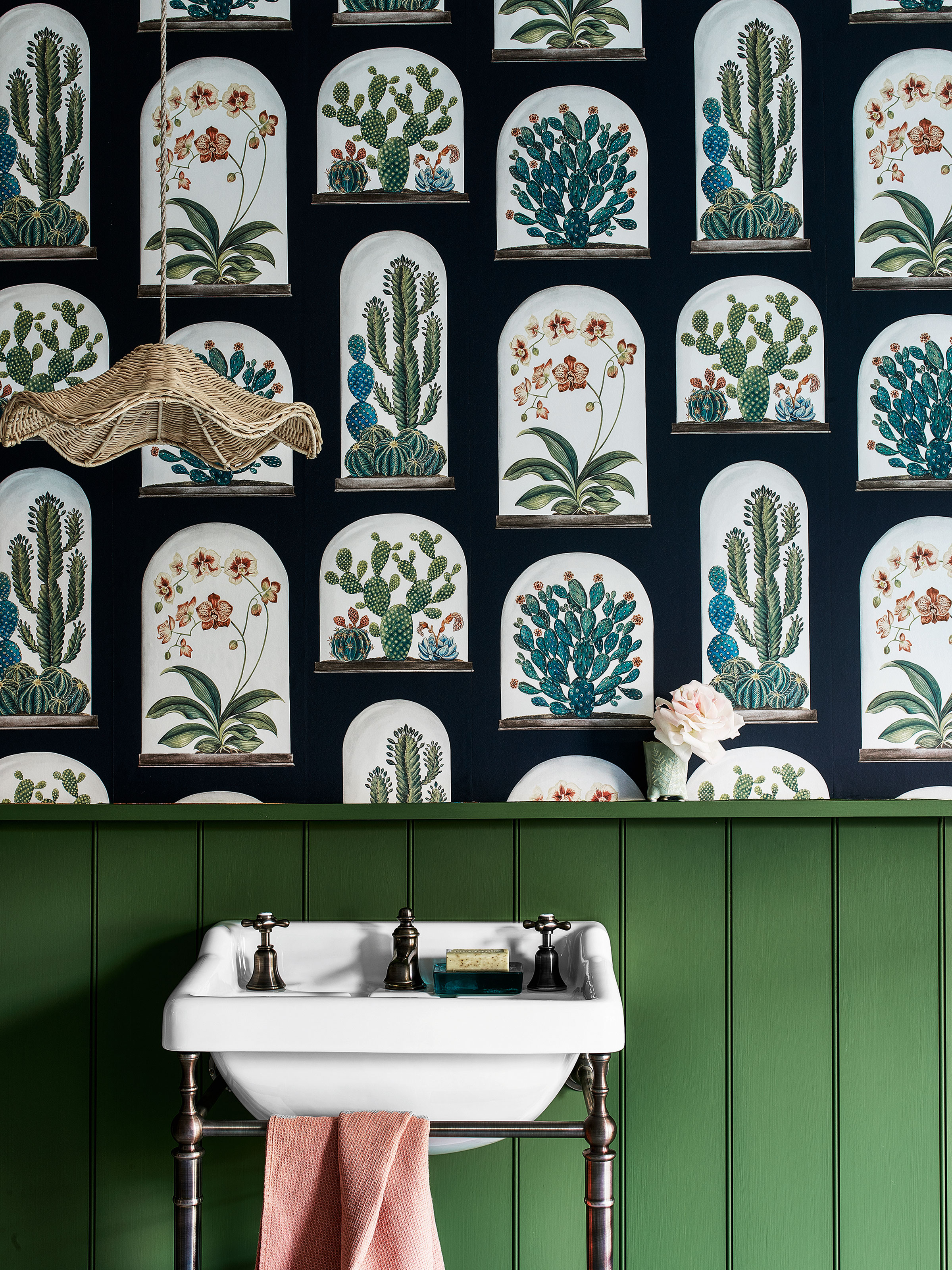
One of those other options is to combine wainscoting with your favorite bathroom wallpaper ideas. As a rule of thumb, standard wallpaper can be used in a well-ventilated bathroom, in areas that aren't going to directly get wet from faucets or showerheads.
The beauty of this wallpaper and bathroom wall panel idea is that the wainscoting ensures the wallpaper is kept out of the splash zone.
'Wall paneling is a brilliant design element to bring to a bathroom where function is so often prioritized over form, but combining this with a detailed and alluring wallpaper can add an element of character and charm, as well as making a room feel larger,' says Emma Coles, Stylist at Sanderson, where this characterful Terrarium wallpaper is from. 'Picking out a color in the wallpaper to match the wall paneling is a brilliant way to execute this look.'
6. Use wall paneling for a durable powder room design
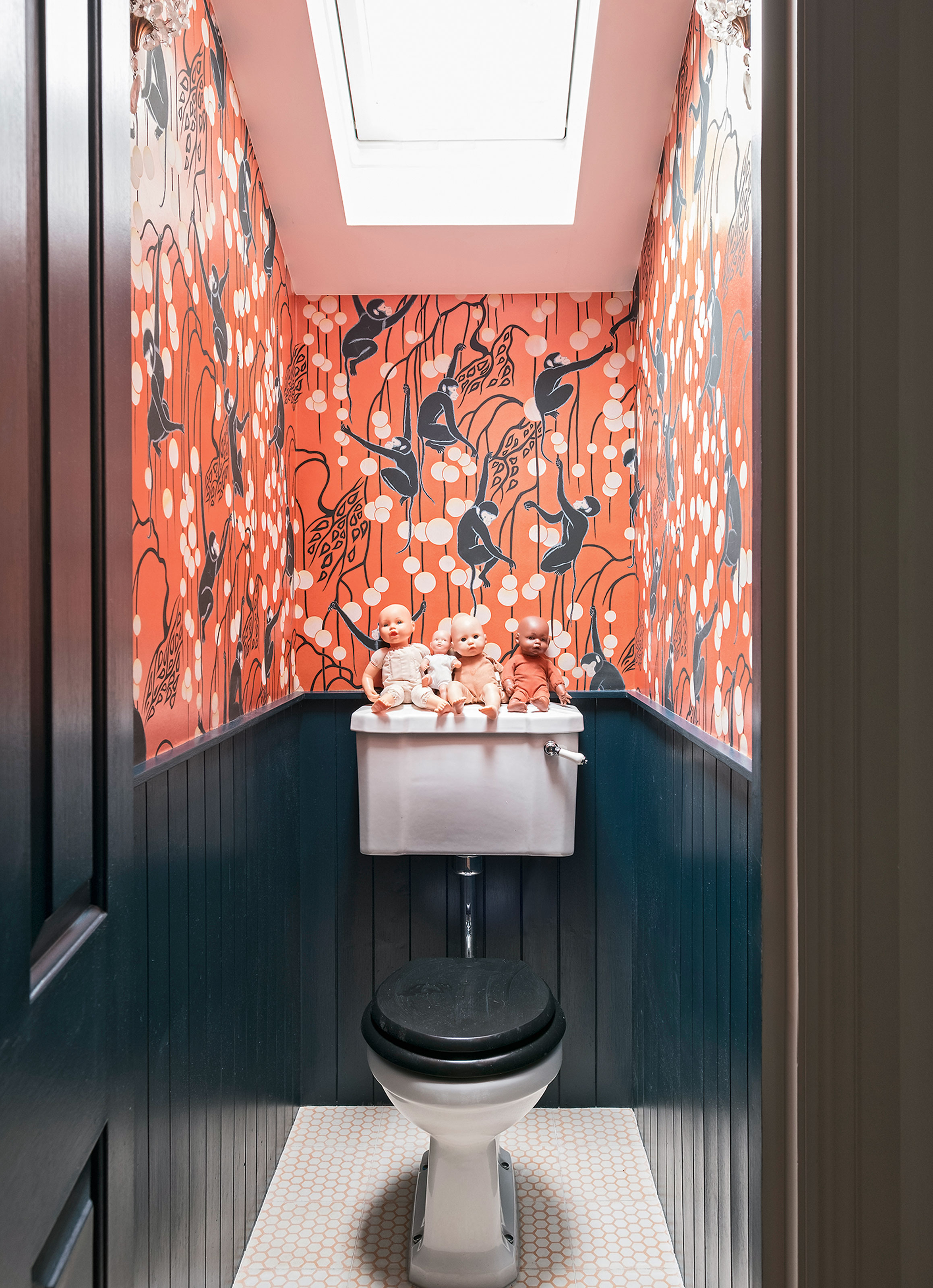
The durable nature of wall paneling means it's worth considering for a busy bathroom, making it a good powder room idea for your guests.
Powder rooms don't have to be designed for daily use in the same way as your main bathroom, so you can think bolder when it comes to paneling for this space that you might dare to go when choosing master bathroom ideas.
Bold color contrasts, unusual paint finishes and plenty of pattern and print – consider how paneling will play a part in a powder room design that will wow visiting guests.
7. Install three-quarters paneling to flatter the proportions of your bathroom
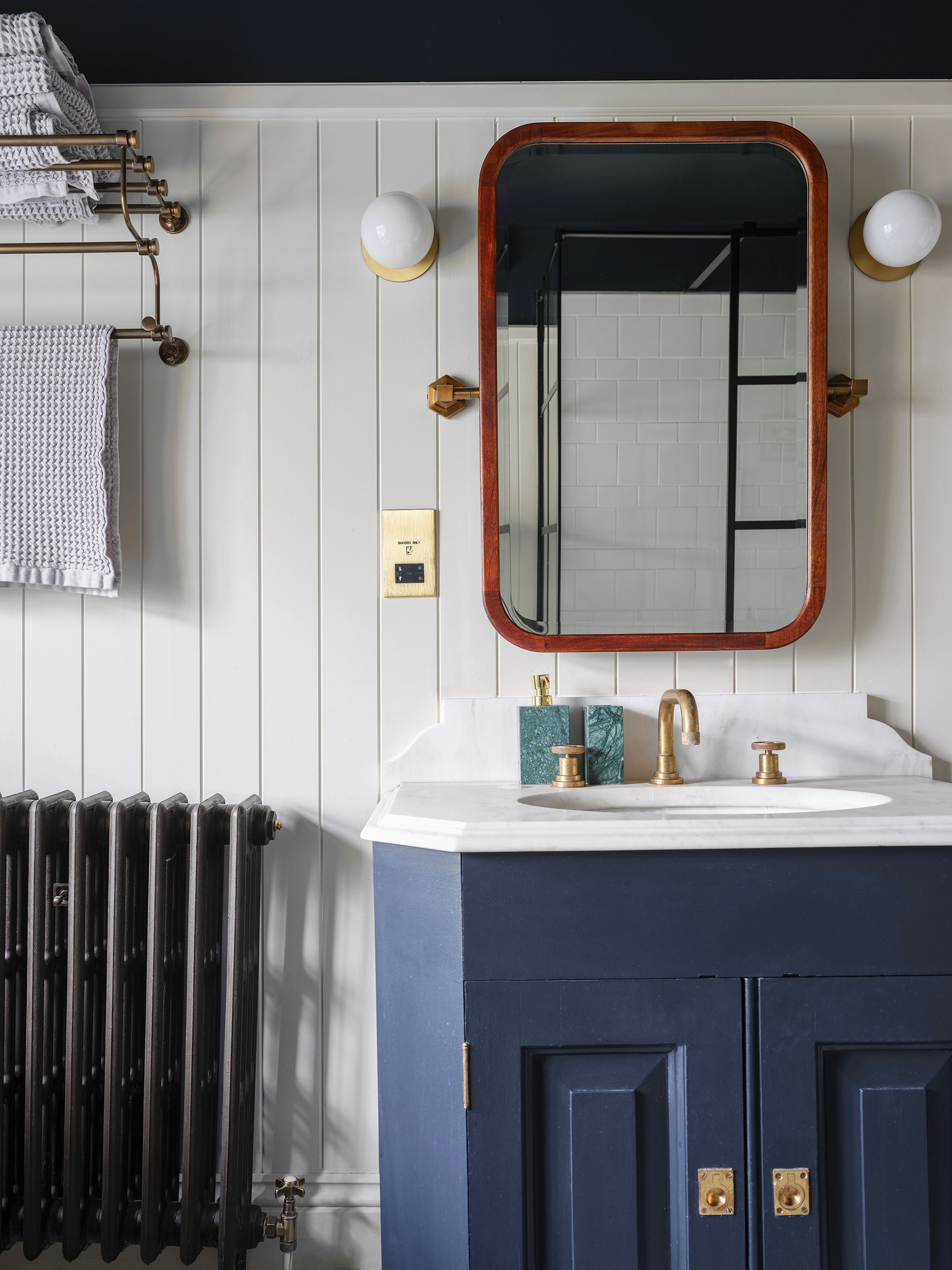
Three-quarter wall panels will flatter the proportions of homes with lofty ceiling heights, and they can help simplify the horizontal lines across your bathroom.
Where wainscoting tends to be lower on the wall, you'll find it intersects other elements of your bathroom, from the towel rail to your cabinetry, which may make for an awkward junction.
A three-quarter height paneling keeps this horizontal line above your head and out of the way. In this small bathroom, this allows the mirror and bathroom wall lights to be framed by the paneling too.
8. Choose a bold colour for bathroom wall panels
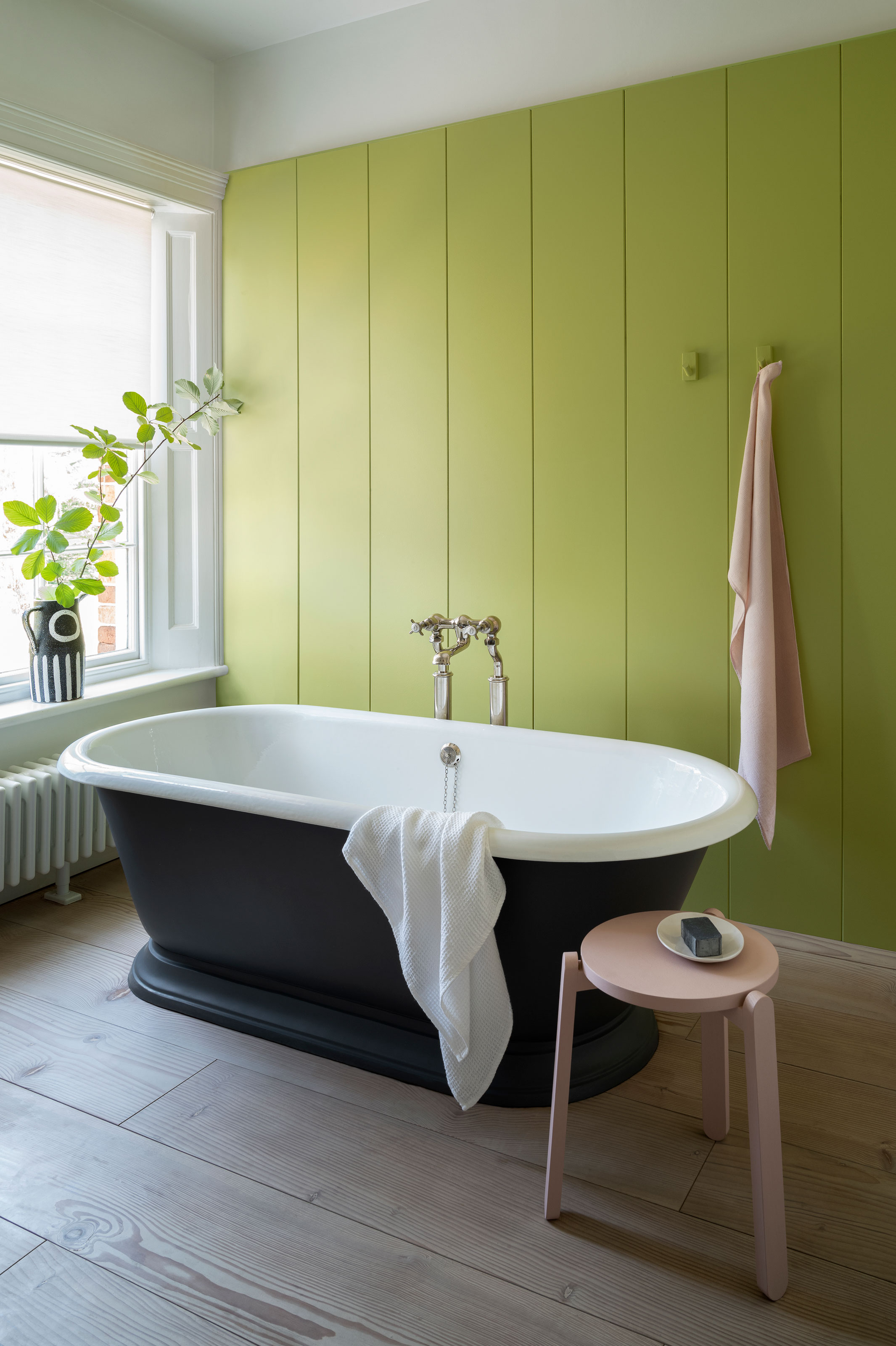
You might find yourself drawn to specific colors when it comes to painting bathroom paneling. White is a popular choice for a light and airy scheme, but equally dark, rich jewel tones regularly pop up when looking for bathroom color ideas.
The draw towards these tones stems from its heritage roots, but paneling can be painted in any color to match your scheme.
'Picking the right color to decorate them with is key; if you prefer a subtle and elegant aesthetic consider a tonal scheme in by matching the wall color with the panel décor, or for more impactful finish pick out a complimentary or feature color to draw the eye,' says Benjamin Moore's Helen Shaw.
Here, a vibrant yellow-green wall color, Euphorbia from Paint & Paper Library, brings a zesty energy to this bathroom design.
9. Pair a painted ceiling with paneled walls
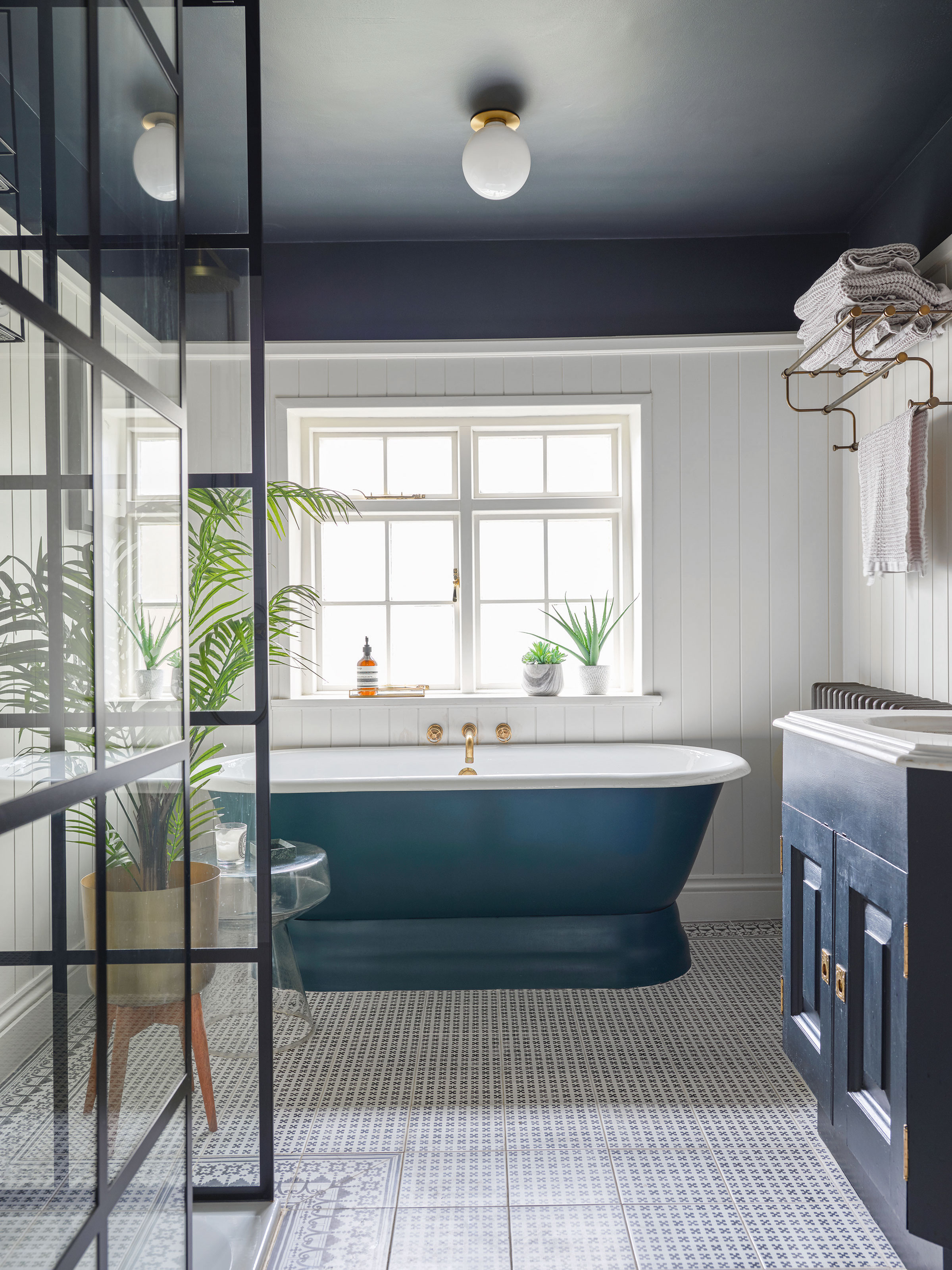
Painted ceilings are a serious bathroom trend at the moment, and this can be extended to a paneled bathroom in a unique way too. This combination of three-quarter paneled walls with a painted ceiling creates a rich contrast that ups the luxury factor while bringing a cozy vibe to this space that will make lingering in the bathtub much more appealing.
However, while this home's high ceilings can take the burden of this deep blue-black color, be warned that painting your ceiling in a dark color will visually bring the ceiling height down, especially when used on the tops of the walls too. Fortunately for this space, it creates a more intimate bathroom, playing off the other dark tones in the room.
10. Add new textures to your bathroom scheme with paint
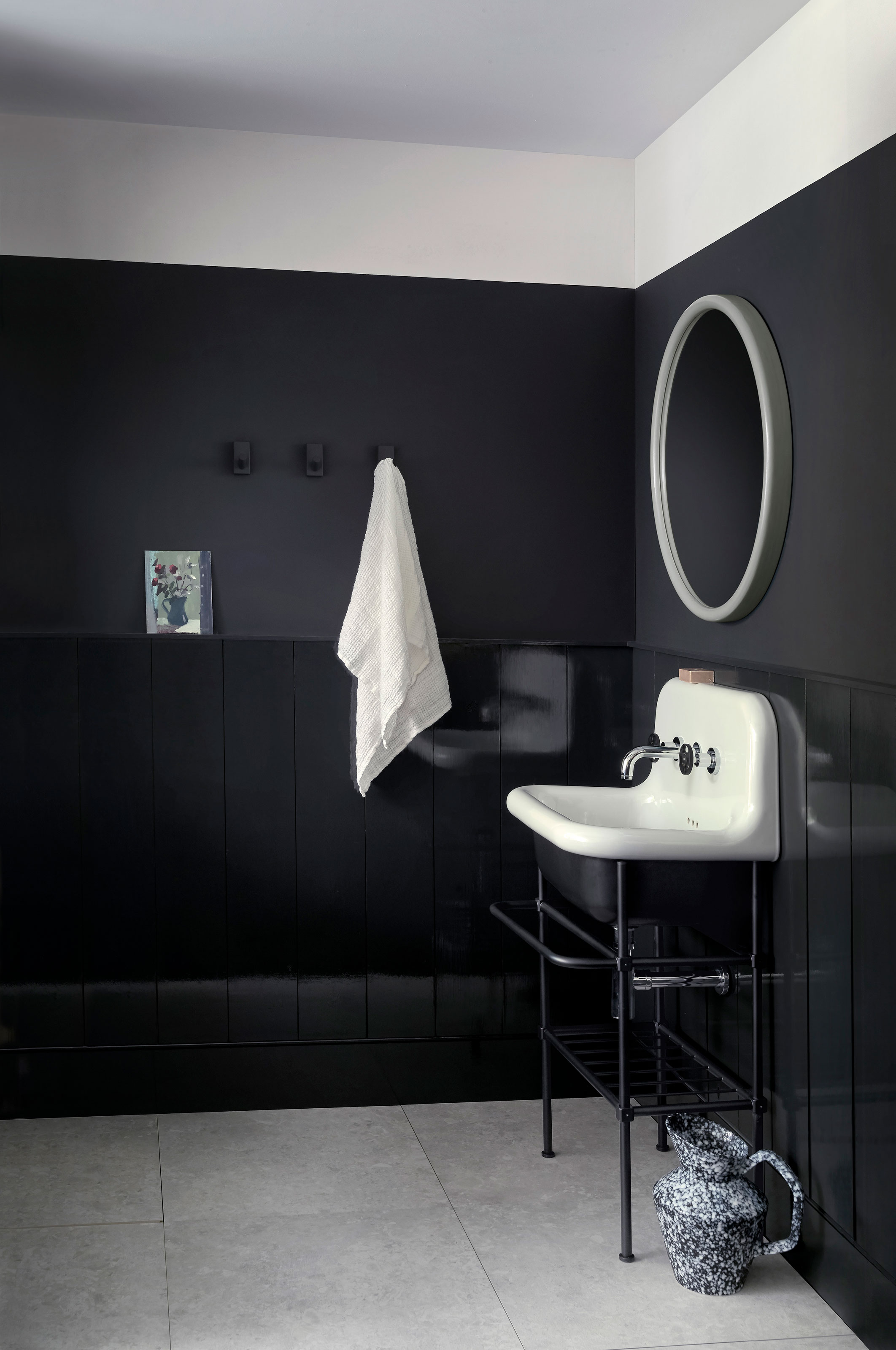
Your choice of finish for bathroom paneling will have an impact on how your final scheme reads.
'As well as choosing the perfect color for your bathroom it is important to consider finish, are you looking for a matt finish or a high sheen gloss finish?' asks Andy Greenall Head of Design, Paint & Paper Library.
'Different finishes give a different end result, gloss provides a more traditional feel on woodwork or paneling whereas eggshell or satinwood creates a more contemporary finish.'
While this may be true on the whole, experimenting with finishes can give a new twist to a classic bathroom scheme. This dark bathroom idea, for example, uses a matt wall paint mixed with a gloss wood paint to create an interesting texture for a contemporary take on what's otherwise a traditional design.
11. Use paneling to streamline your bathroom’s pipework
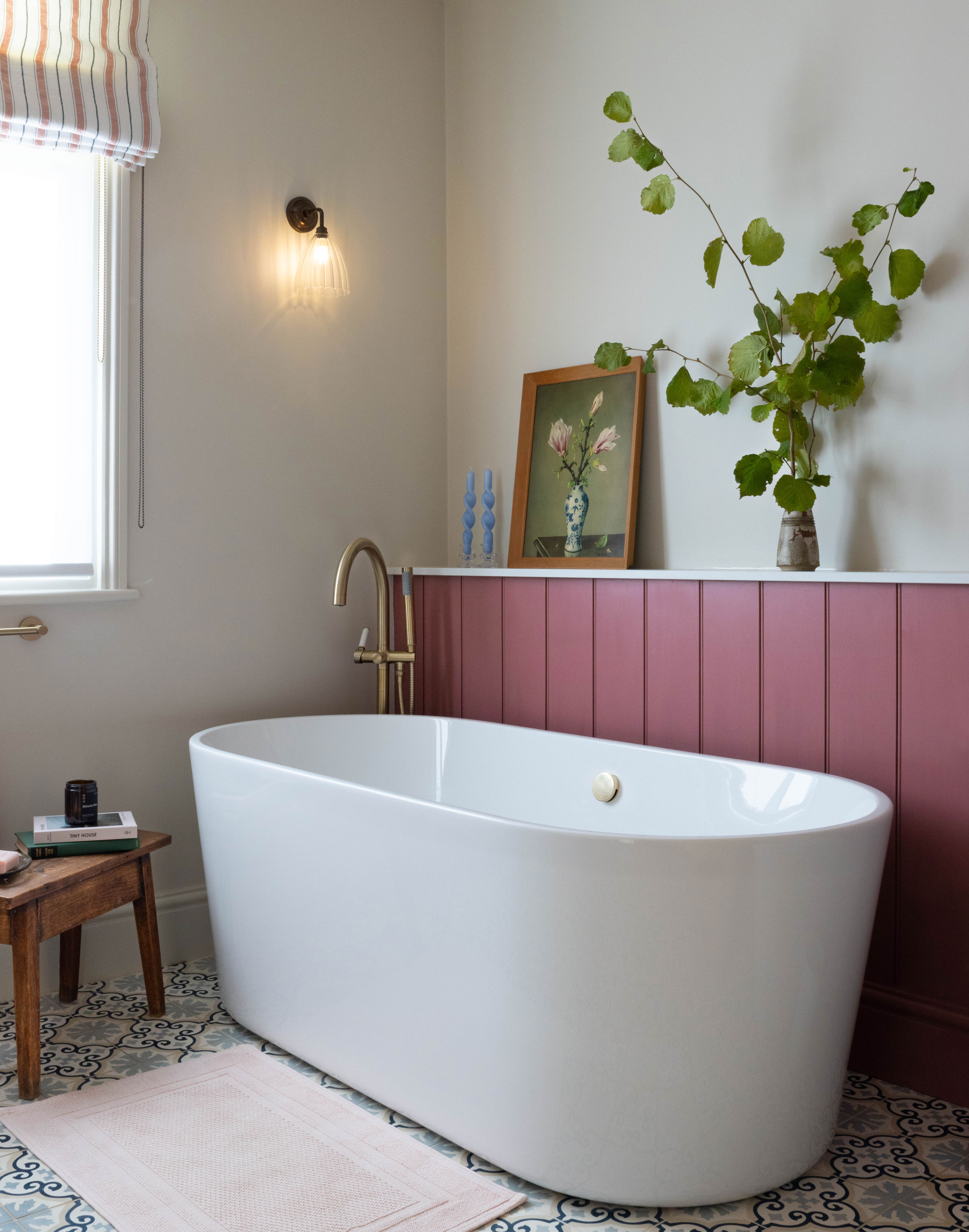
Where reconfiguring pipework is too disruptive or when you're looking to install sleek contemporary bathroom fittings like wall-mounted faucets or a cistern, paneling can offer you a design alternative for streamlining your space.
In this design by Janet Hanson of Studio Hanson, building out carpentry was the obvious solution, but more than just a practicality, it became a key feature of the bathroom design.
'The wall-mounted cistern needed concealing so the gap above this seemed the obvious choice,' explains Janet. 'I designed the cabinetry to hide the cistern and related pipework whilst also creating a ledge to place toiletries and decorative objects.'
'The ledge has a quartz top to tie in with the vanity to make it a practical surface for wet shampoo bottles. The cabinetry is painted in Farrow & Ball's Crimson; we tried out a few options before landing on this shade, which is the perfect deep, soft plummy pink, offsetting the petal pink zellige tiles that line the opposite side of the room.'
What kind of paneling can be used in a bathroom?
MDF paneling is the best choice of material for a bathroom, as it's moisture resistant, so unlike wood it won't expand and contract as the humidity in the air shifts. This will help you to avoid cracks after installation, meaning less upkeep on your part. However, you'll need to limit timber paneling to areas that aren't directly exposed to water, such as showers.
'Whether you opt for traditional symmetrical patterns, the simple elegance of tongue and groove, or a more contemporary geometric design, also ensure that you have thought thoroughly how the installation will work,' recommends Helen Shaw, UK Director at Benjamin Moore.
'Careful planning is essential so you can ensure that the joins work and that you’ve thought of practical considerations such as it will work in relation to your bathroom fixtures and fittings.'
Outside of timber paneling, panels made from modern composite materials such as Orac Decor, while it's also possible to find traditional paneling designs made from ceramic and porcelain tiles, meaning they can be used in
What should I use to paint bathroom paneling?
Bathroom woodwork can benefit from being painted in a finish that is slightly more water-resistant and easy-to-scrub than paneling in the rest of the house.
'Traditionally hardwearing gloss paints were the go-to finish for bathroom paneling and woodwork, but with the breakthrough Intelligent water-based paints, which are completely washable and can be used with the utmost confidence on most surfaces including plaster, woodwork, and even radiators, it’s become a matter of taste rather than simple functionality,' explains Ruth Mottershead, Creative Director of Little Greene.
'For bathroom paneling, select a hard-wearing, washable finish such as Intelligent Satinwood which will withstand the moisture and knocks of a busy family bathroom, ensuring your walls remain beautiful in a space that often experiences condensation and frequent cleaning.'

Hugh is Livingetc.com’s editor. With 8 years in the interiors industry under his belt, he has the nose for what people want to know about re-decorating their homes. He prides himself as an expert trend forecaster, visiting design fairs, showrooms and keeping an eye out for emerging designers to hone his eye. He joined Livingetc back in 2022 as a content editor, as a long-time reader of the print magazine, before becoming its online editor. Hugh has previously spent time as an editor for a kitchen and bathroom magazine, and has written for “hands-on” home brands such as Homebuilding & Renovating and Grand Designs magazine, so his knowledge of what it takes to create a home goes beyond the surface, too. Though not a trained interior designer, Hugh has cut his design teeth by managing several major interior design projects to date, each for private clients. He's also a keen DIYer — he's done everything from laying his own patio and building an integrated cooker hood from scratch, to undertaking plenty of creative IKEA hacks to help achieve the luxurious look he loves in design, when his budget doesn't always stretch that far.